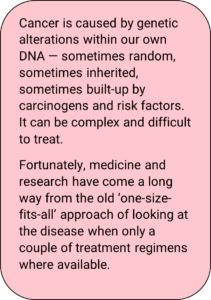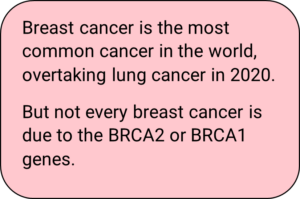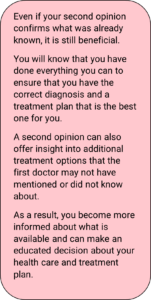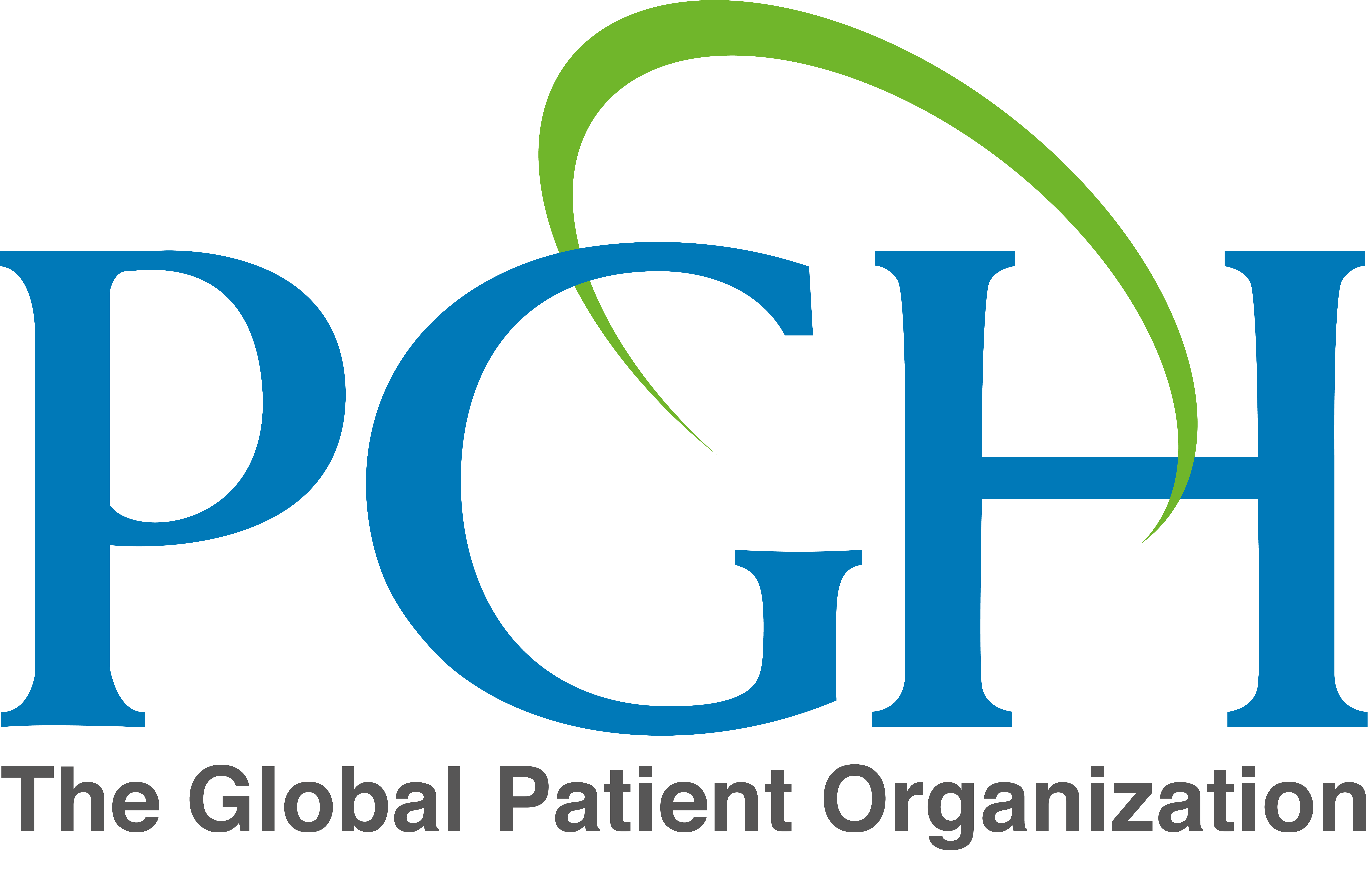Helping Anna Survive Hereditary Breast Cancer
May 1, 2022

Genes are pieces of DNA that biological parents pass down to their children. They influence things like the shape of your nose, the color of your eyes, the curve of your ears, and the length of your toes. 
One of these genes changed Anna’s* life: BRCA2.
BRCA2 is a gene that helps repair damaged DNA and prevent cancer tumors from forming. Women with a BRCA2 mutation have an increased risk for developing both breast and ovarian cancer.
Although she leads a very active and healthy lifestyle, Anna’s family history suggested a genetic predisposition to cancer. Two of her aunts had been diagnosed with cancer and she suspected it also affected her grandmother.
But she did not expect it to come so soon. At the age of 36, when she was looking at herself in the mirror, she noticed a large lump in her armpit.
 Given her young age and family history, her doctors were concerned she could have hereditary breast and ovarian cancer (HBOC) syndrome that could be due to a mutation in one of her BRCA1 or BRCA2 genes. Genetic testing undertaken at a top hospital detected a mutation and confirmed the doctor’s suspicion.
Given her young age and family history, her doctors were concerned she could have hereditary breast and ovarian cancer (HBOC) syndrome that could be due to a mutation in one of her BRCA1 or BRCA2 genes. Genetic testing undertaken at a top hospital detected a mutation and confirmed the doctor’s suspicion.
Anna wanted to be sure her diagnosis was complete, and the extensive treatment plan her doctor suggested was the best one for her. The treatment included chemotherapy, bilateral mastectomy as a precaution, and radiation.
 Through her insurance plan, Anna enjoys PGH services as a benefit that include the Diagnosis Verification and Treatment Plan and Doctor-to-Doctor services.
Through her insurance plan, Anna enjoys PGH services as a benefit that include the Diagnosis Verification and Treatment Plan and Doctor-to-Doctor services.
She called her insurer’s customer service to inform them of her diagnosis. Within one business day, a Personal Care Manager from PGH contacted her and scheduled a call to understand Anna’s needs and situation.
A licensed nurse with experience in cancer care, her Personal Care Manager, would coordinate the service and help Anna through each step.
Firstly, Anna requested her medical records from her medical team, which they were happy to provide as patients own their health information and can have copies.
One of the most recognized hospitals and medical schools in the US Dana-Farber Cancer Institute, which is a Harvard Medical School affiliated hospital, was chosen specifically because of their (renowned) Center for BRCA and related genes.
Anna’s medical case and documents were carefully examined by not just one single doctor, but an interdisciplinary team of experts with complimentary specialties in diagnosing and treating breast cancer and knowledge of the latest therapies.
The interdisciplinary team found that the breast cancer diagnosis and (identified) genetic mutation was correct. On the treatment, their expert opinion shared that a targeted drug therapy had shown very good results for patients with the BRCA2 mutation. This drug therapy is available in Anna’s home country and was added to Anna’s treatment.
Anna’s local medical team also discussed her treatment with the specialist in the US. This videocall between doctors reassured Anna and her family that this was the best course of treatment.
The Personal Care Manager helped Anna feel comfortable and understand everything about the full treatment, follow-up care, side effects, and other risks of the mutation.
In the future, she would have to be on the lookout for recurring cancers especially in the breast or ovaries.
The doctors also suggested that direct female family members, like her sister, should undergo genetic testing. Luckily the test revealed her sister does not have the BRCA2 mutation.
Cancer treatment can affect fertility. Anna would make the decision to preserve fertility should she want a second child. She received support about balancing motherhood with a young child and cancer and she made sure that her husband and family also knew what was coming when it came to the lifestyle changes that came with her treatment.
Throughout her treatment and recovery, Anna was lucky to have the support of her family and a flexible and understanding work environment.
To prevent and detect another cancer at an early stage, Anna knows that she has to go to regular cancer screening and check-ups. She has been able to use her own experience to counsel her younger cousins.
